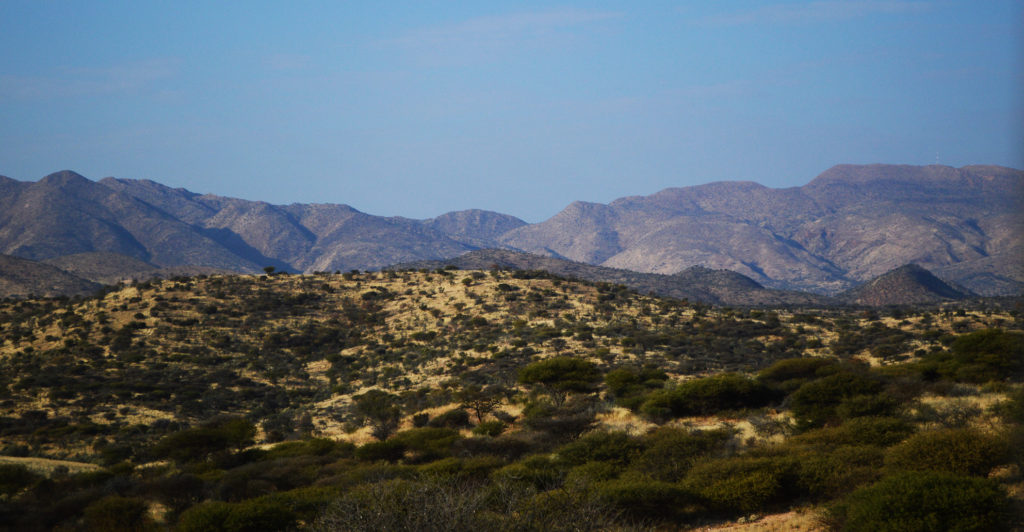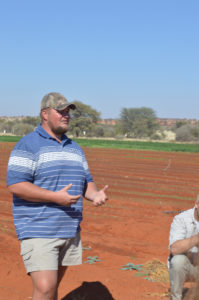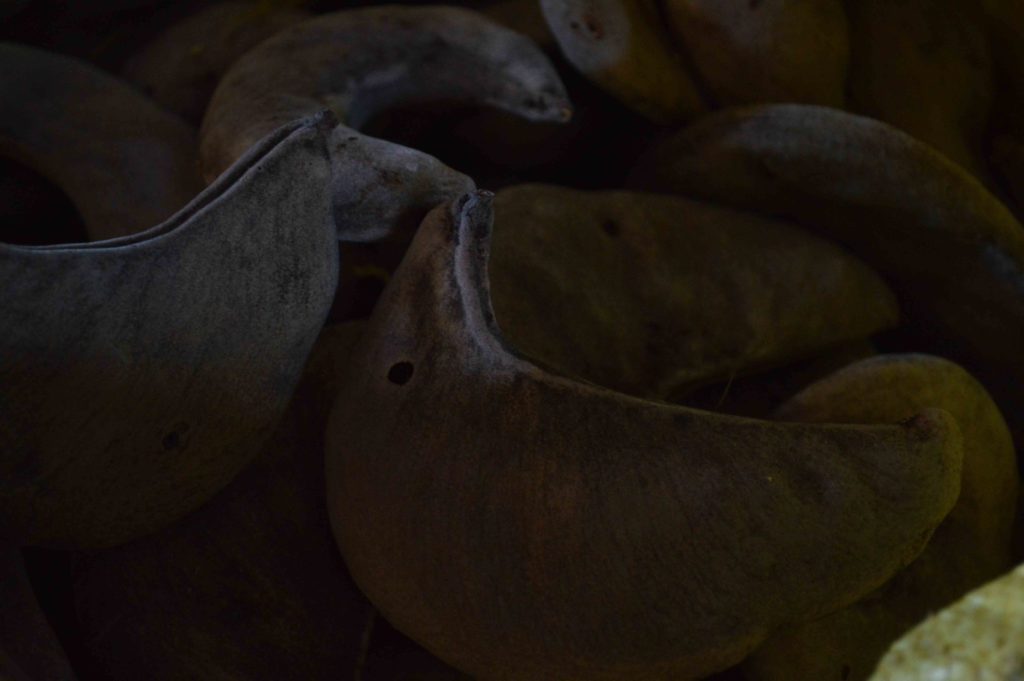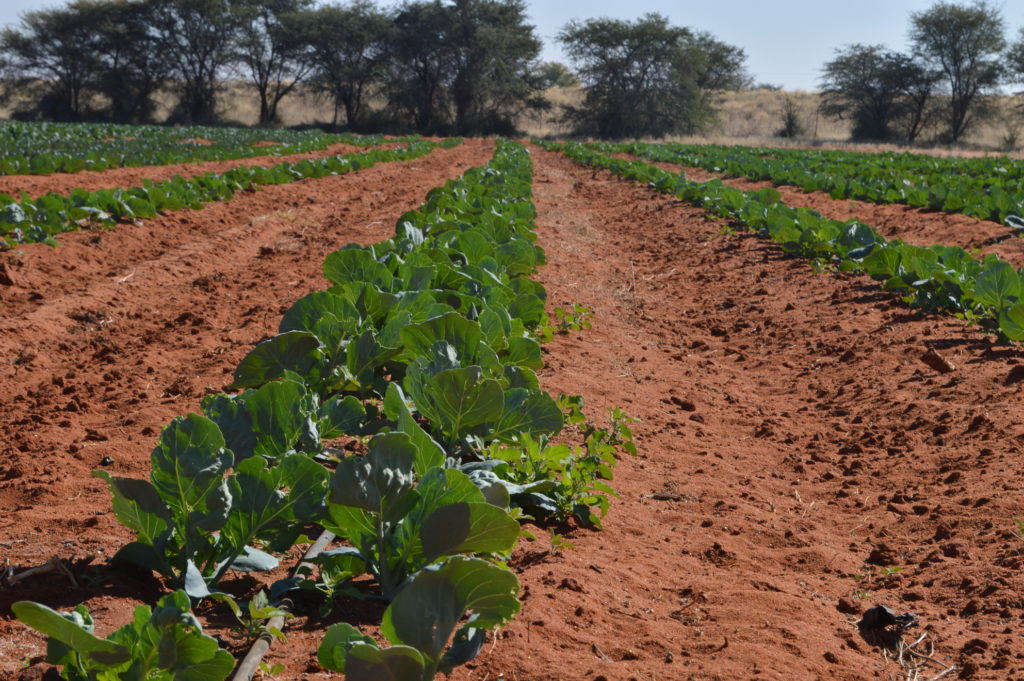Throughout our time in Namibia, my fellow classmates and I have seen and learned a lot about this great country. We’ve experienced sand dunes in the desert, mountain ranges outside of Windhoek, and the coastal beaches in Swakopmund.

Mountain ranges outside of Windhoek, Namibia on July 12, 2017. The Namibian landscape changes throughout the country, bringing a variety of life to all who visit.
With a desolate landscape, private land owners in Namibia can be limited in retaining revenue from their lands. The country has 33% of its land devoted to communal lands with the remainder being private land and national parks. There are 17 million hectares (42.5 million acres) of private land, which is predominately owned by European-descended Namibians. Land owners have multiple options of what to do with their land. We were able to catch a glimpse of these land owner livelihoods during our visit at Patria Farms.
Patria Farms is located a few hours southeast of Windhoek in Stampriet. Jimmy O’Kennedy owns and manages Patria Farms, a family-run vegetable and fruit farm. Patria Farms encompasses 10,000ha (25,000 acres) and has been in the family for four generations. They grow a variety of crops that we would see in the United States. Carrots, lettuce, varieties of squash, and oranges can be seen throughout the farm, as well as cattle and sheep.
Jimmy took over the family farm when his father passed away. Because of the Agricultural Land Reform Act, Jimmy and his family could either keep the farm or try to sell it. The act, passed in 1995, states that if a private land owner wishes to sell their land, they must first offer it to the state. If the state does not wish to buy the land, then it can be sold to an individual who has the right to buy land in Namibia. Selling the land was not a plan for Jimmy, so he left his job in Windhoek and moved back to the farm.

Jimmy O’Kennedy owns and manages Patria Farms in Stampriet, Namibia on July 15, 2017. This farm supplies various fruits, vegetables, and meat for the surrounding communities.
The farming practices at Patria Farms were similar to what we would see in the United States, especially in Arizona. Drip irrigation is used to water the crops. After they are harvested, Jimmy removes the irrigation systems and plows the fields. He leaves some of the stalks and other parts of the crops in the ground and turns them back into the field, which helps put nutrients back into the soil.
Utilizing his degree in agricultural economics and understanding of market prices, Jimmy has been able to identify the quantity of crops that he should plant each year. He knows what his consumers want and will plant the right amount so that there isn’t excess.
Even though Patria Farms is privately owned, the farm has a sense of community. Jimmy employs a multitude of families and supplies produce to the surrounding communities.

Camel thorn pods taken from Patria Farms on July 15, 2017. The thorns are used as cattle and sheep feed to provide extra nutrients in the animals’ diets.
When thinking about my future career, I can definitely look back on this experience. I saw how Jimmy used leadership, critical thinking, and communication skills to run his farm, and take those lessons into the coming years. I now feel comfortable to look at any situation, whether or not it is agriculturally-related, and be able to adapt to the environment around me to prosper.
